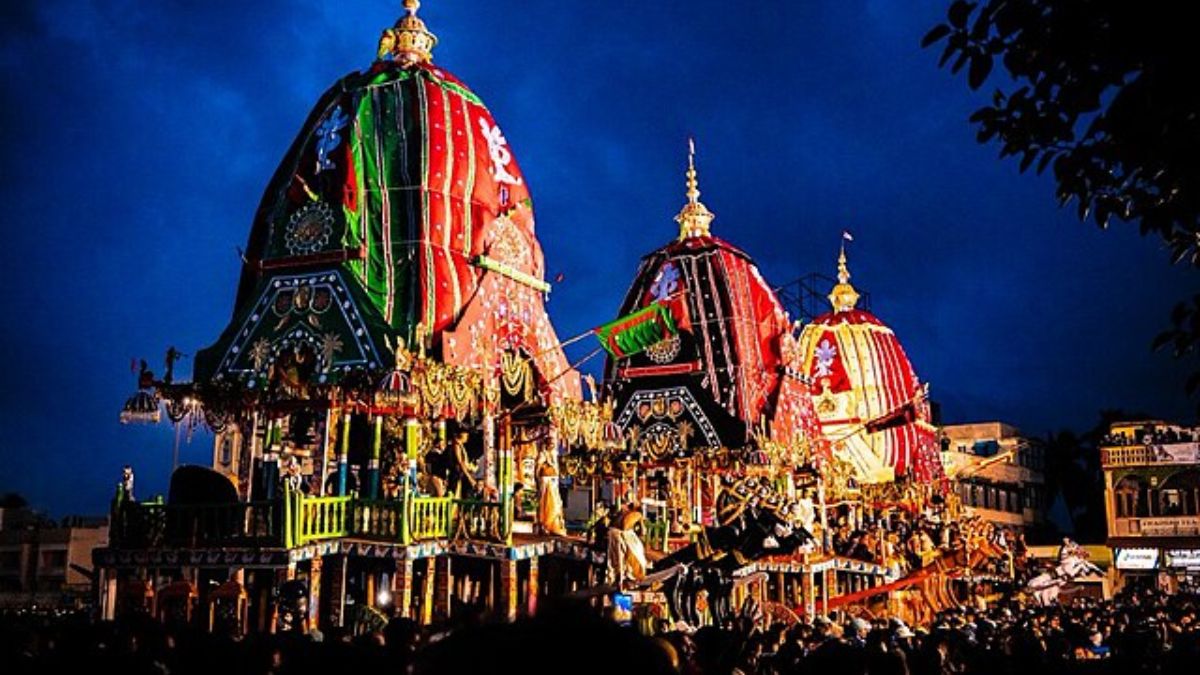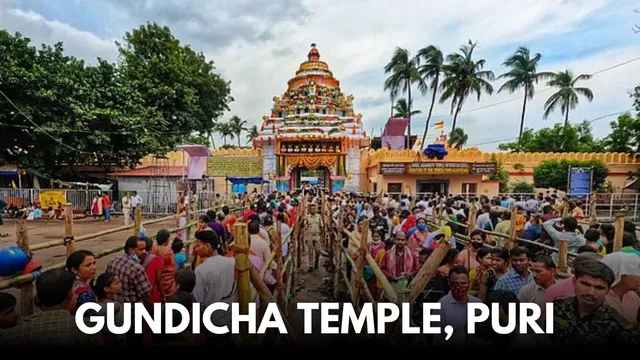- By Kashish Rai
- Sun, 07 Jul 2024 12:38 PM (IST)
- Source:JND
Jagannath Rath Yatra 2024: The Garden House of Lord Jagannath is another name for the Gundicha temple in Jagannath Puri in the state of Odisha. It is surrounded by walls on all sides and is situated in the centre of a lovely garden. It is located around three km away from the Shrimandira, Jagannath's main shrine. The renowned Puri Ratha Yatra follows the Bada Danda, or Grand Road, which has these two temples at either end. The nine-day Ratha Yatra, during which Lord Jagannath is worshipped at the Gundicha temple, is the only event that occurs there during the year. Nevertheless, at this period, foreign visitors who are not permitted to enter the Jagannath temple are welcome to enter.
Let us check out the 4 significant legends associated with the Gundicha Temple.
Jagannath Rath Yatra 2024: 4 Legends Associated With Gundicha Temple
1. Named After Gundicha - The Wife Of King Indryumna
Gundicha, the queen of Indradyumna, is said to be the inspiration behind the name of the Gundicha temple. The Mahabharata claims that Indradyumna, a Malava ruler, was the son of Bharat and Sunanda. According to legend, while the divine architect Vishwakarma was constructing the Jagannath temple, the queen Gundicha was so taken in by the sight that she asked her husband Indradyumna to construct a second, identical temple in the god's honour. She also wanted her husband to go on the Ratha yatra, therefore he established the tradition of a husband following his wife's desires and travelling on the Ratha yatra.
2. Shri Chaitanya Mahaprabhu And The Gundicha Temple
The Bhavishya Purana states that Chaitanya Mahaprabhu was the combined form of Lord Krishna and Shri Radha Rani. He performed the Ratha and Chandan Yatras, leading sankirtan processions outside the Jagannath shrine and singing devotional hymns. He was said to be a devoted follower of Lord Jagannath, and during his turbulent periods, he was reported to have fainted and gone into a nearly vegetative state. When he was pleased, he was supposed to dance and sing with great emotion and to enter an almost trance-like bliss when seeing the god's love play.
One day, the day before the Ratha Yatra began, Chaitanya Mahaprabhu took on the duty of sweeping the Gundicha temple. It is believed that he approached the Gundicha temple without the knowledge of his attendants or supporters, at which point he vanished from view. One of Puri's unresolved mysteries is still his disappearance; he was last seen entering the Manikotha. According to other accounts, he joined Jagannath inside the temples and now dwells with him in Indralok.

The chariots of lord Jagannath, Baldev and Subhadra Devi are taken to Gundicha Temple during the Rath Yatra festivities. (Image Source: Wikimedia Commons)
3. The Tale Associated With Goddess Lakshmi
The tale of Jagannath and his spouse Devi Lakshmi is recounted in another legend. After locking Lakshmi in the Jagannath temple's store room, Jagannath moves to the Gundicha shrine to stay for a week. This account highlights Lord Jagannath's similarity to Krishna since, in the Gundicha temple, he is said to have received care from devadasis, who are said to be representatives of Krishna's gopis and led by his beloved, Radha Rani, much as in the Krishna story in Vrindavan. When Jagannath returns to his temple, Lakshmi enters and covers him with magic dust, causing him to forget his adventures with the devadasis and reunite with his own spouse or lover.
4. The Tale Of Goddess Gundicha
According to another tale, the temple's name comes from a local deity called Gundicha, who is said to be similar to Durga. Legend has it that Krishna Jagannath, along with his brother and sister, would visit her every year as his aunt. It is said that gundicha may heal certain deadly diseases, the most amazing being smallpox. At this time, Bengal was experiencing a smallpox outbreak, and people prayed to Gundicha in hopes of curing the afflicted. Odian word "gundi" means "small pox." The word's etymology is similar to Guti, the name of the small pox deity of the nearby Bengali city, Gutika Thakurani.

